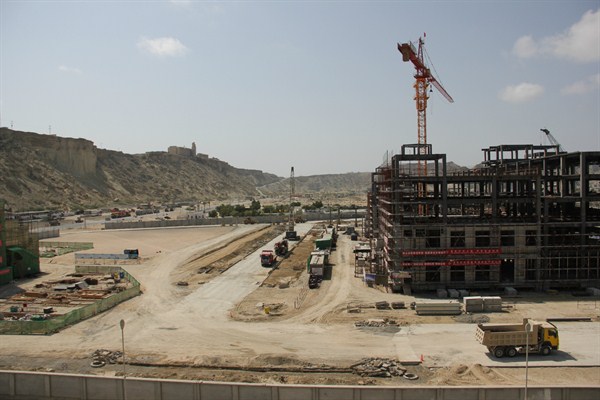Loading your audio article
Five years after Chinese President Xi Jinping introduced the Belt and Road Initiative to the world, the ambitious multitrillion-dollar infrastructure scheme is experiencing major growing pains. Months of harsh media scrutiny, criticism from the United States and Europe, some surprising grumbling domestically, and backtracking from key partner countries have put a dent in what had been promoted as a seamless chain of China-funded transportation and development projects spreading out across the Asian continent. Xi’s signature foreign policy initiative now faces skepticism in the country that has been its most enthusiastic cheerleader and most willing testing ground: Pakistan.
On Sept. 9, immediately following a visit to Islamabad by Chinese Foreign Minister Wang Yi, the Financial Times broke a story that cast doubt on the state of China and Pakistan’s ties and further hurt the Belt and Road’s brand. The government of new Pakistani Prime Minister Imran Khan, the paper reported, planned to “review or renegotiate agreements reached under China’s Belt and Road Initiative” because they were considered unfair and financially onerous.
The projects potentially under review are all part of the China-Pakistan Economic Corridor, or CPEC, a $60 billion collection of energy and infrastructure projects, which is the flagship venture of the Belt and Road Initiative so far. Khan has already formed a committee to evaluate CPEC. One of its members, Commerce Minister Abdul Razak Dawood, suggested that Pakistan might choose to put CPEC on hold or stretch its implementation over a longer period of time. Finance Minister Asad Umar confirmed that a review process was in place, implying that the government could indeed consider a modification to CPEC, which includes a huge deep-water port project in southern Pakistan, $30 billion in new power plants, and a network of new highways and railways.

